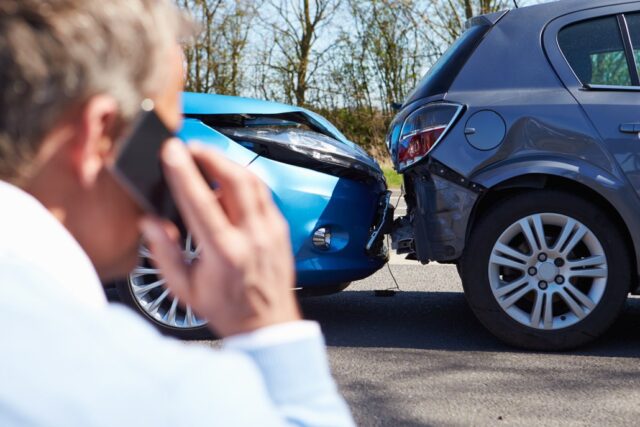
Were you recently involved in a car accident? Each year, 20 to 50 million people around the world suffer from non-fatal road injuries. Often, these non-fatal road injuries can cause long-term disability to the victims. Whether you were involved in a car accident or not, it is still important to stay informed about the procedures in settling a car accident claim to help you prepare for the worse as it can happen anytime, anywhere; the minute you enter a car, you are at risk of a car accident. Check out our post below to guide you in getting the best out of your car accident settlement claim.
1. When to Settle a Car Accident Claim

Any car accident victim has the right to file a claim. It may be overwhelming to get everything one right away, but did you know that there is a deadline to file a lawsuit or insurance claim? The time limit on pursuing a claim or lawsuit after your car accident depends on your state’s statutes of limitations. It is important to look up these time limits so that you will be on track throughout the negotiation process.
Keep in mind that your claim will be rejected by the court if you file a claim or lawsuit after the statutes of limitations have passed. There are several exceptions to the statute of limitations and it can vary from tolling agreements to active military duty. However, it is best to not depend on these exceptions and process your claim on time as these exceptions are limited and dependent on the laws of each state.
2. Documenting the Car Accident
One important aspect of settling a car accident claim is gathering sufficient evidence that proves you can take and win your case in court if you want to. Hence, you have to be equipped with the right set of information about the car accident, particularly the other driver’s information before you report a claim according to your state’s laws.
It is best to keep documentation of each process to help back up your claim. Your documentation should include the police report of the car accident, the terms of the other party’s insurance policy, eyewitness reports, health records, medical bills, and photographs of the accident. Remember, the insurance company will make a settlement offer based on the information and documentation you provide.
3. Knowing the Value of Your Claim

Once you have filed your car accident claim, you will receive a reservation of rights letter from the insurance which confirms its receipt of your claim and will soon begin discussing the contents of your claim with you. This letter, however, only acknowledges receiving your claim but does not acknowledge the truthfulness of your claim. Part of the process of negotiating a car accident claim is that the claims adjuster for the insurance company will offer you a lower amount than you think you are owed.
If you do not understand the true value of your claim, you will most likely receive less than what you deserve. For instance, Oakland car accident lawyers from KerleySchaffer.com have reported that their clients were originally offered $12,000 for a rear-end auto collision case. After a lawsuit was filed, the client was able to receive a $70,000 settlement.
This only goes to show that you should be meticulous when assessing the true extent of damages caused by the accident so you can accurately calculate the value of your claim. Also, remember that the car accident settlement process is very exhausting and time-consuming, so you have to fight for your right.
4. Types of Damages

Now that we have discussed the importance of knowing the true value of your claim, it’s time to ask yourself, “What types of damages can I collect?” In general, you’ll find that in most personal injury cases there are 2 kinds. There are special damages which are damages capable of exact calculation and general damages, which are damages not capable of exact calculation.
Special damages typically include property damages that can be easily worked out as you readily have an actual cost to either fix or replace after the accident. This includes lost earnings that you have lost as a result of your car accident injury, medical bills, property damages, and other costs that the car accident may have incurred.
As for damages not capable of exact calculation, this includes the pain, suffering, and mental anguish caused by the injuries you sustained from the car accident. Unlike special damages, there is no exact guideline in setting standards for what your pain and suffering is worth or is equivalent to. At this point, it is better to consult your lawyer to guide you on your next steps
5. Accepting a Settlement Offer
Before you accept a settlement offer, you should be aware that you may still receive compensation even if you reject the offer. You may either make a counter-offer or take the trial to the court. You should also note that once you have reached a settlement agreement, you may no longer ask for money or take the case to the court in the future since it is final and binding.
Even if your injury results in more serious complications, the insurance company is no longer liable for any payments that were not included in the settlement agreement, hence, you should always understand the full value of your claim before you sign an agreement. If what the other person or party involved makes an offer that you find is not suitable, you may file a lawsuit to gain bargaining leverage.
This will pressure the insurance company to make a better offer to avoid having to deal with the case in court. Once you have reached a conclusion with the insurance company, you have to sign a settlement agreement. If it is drafted by the insurance company, make sure to read it carefully and have a lawyer review it as well before you sign the agreement to avoid further issues.
The timeline for a car settlement claim process takes a long time and can be very overwhelming. It involves a lot of investigation, preparation, and negotiation. In the end, you must know your rights and the true value of your claim if you want to achieve the compensation you deserve.







